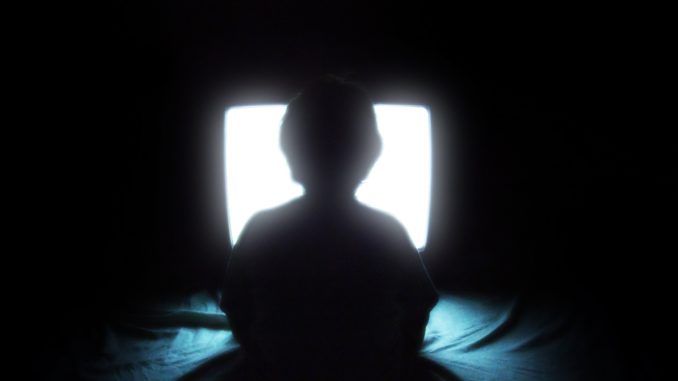
Smartphones, tablets and video games are physically changing the brains of young people according to a landmark US study.
The research, funded by the National Institute of Health and led by the University of California, San Diego, found that children who had a daily screen usage of more than seven hours had premature thinning of the cortex, the brain’s outermost layer that processes sensory information.
Even kids who spent two hours in front of a screen every day scored lower on language and thinking tests, according to early results of the ongoing study

BYPASS THE CENSORS
Sign up to get unfiltered news delivered straight to your inbox.
You can unsubscribe any time. By subscribing you agree to our Terms of Use
Researcher Dr Gaya Dowling told 60 Minutes. “We don’t know yet if it’s a bad thing. It won’t be until we follow them over time that we will see if there are outcomes that are associated with the differences that we’re seeing in this single snapshot”
According to a national survey by Common Sense Media, teens spend an avg. of 4.5 hours a day on their phones. Facebook and Instagram recently introduced features allowing users to monitor time spent on the apps. Apple’s new OS enables time restriction. https://t.co/FglrmpowT3 pic.twitter.com/blIrfqG6hv
— 60 Minutes (@60Minutes) December 10, 2018
Tech Times reports: The data comes from a $300 million research funded by the National Institutes of Health (NIH) that will follow more than 11,000 kids aged 9 to 10 years old. Early results suggest that heavy screen time can have negative implications on the youth’s emotional, psychological, and cognitive development.
ABCD Study
Proponents of the Adolescent Brain Cognitive Development (ABCD) study analyzed 4,500 brain scans of children. They found that those who have more screen time have premature thinning of the brain cortex, the part of the brain responsible for interpreting information from the physical world.
Dr. Gaya Dowling, the NIH study director, said that while the results of the MRI scans showed significant differences in the brain of heavy screen time users, one must not jump into conclusions.
“We don’t know if it’s being caused by the screen time,” Dowling said in an interview with 60 Minutes. “It won’t be until we follow them over time that we will see if there are outcomes that are associated with the differences that we’re seeing in this single snapshot.”
However, Dowling added that interviews and data from the NIH revealed that children who have more than two hours of daily screen time scored low on thinking and language. At the end of the study, the researchers will be able to answer the question of whether or not media is addicting for very young children.
Screen Time Guidelines
The American Academy of Pediatrics’ (AAP) most recent guidelines suggest that for children younger than 18 months, parents should avoid screen time other than video chatting. Two- to 5-year-olds can be introduced to high-quality programming up to one hour per day.
Similarly, children aged 6 years and older should have limitations on screen time so it will not interrupt them from having enough sleep and physical activities.
“Parents play an important role in helping children and teens navigate the media environment, just as they help them learn how to behave off-line,” said Dr. Yolanda Reid Chassiakos, the lead author of the AAP technical report.
Dr. Dimitri Christakis at Seattle Children’s Hospital said that young children, especially babies, have no ability to transfer their visuals experience into real life. This period is critical for human brain development.



